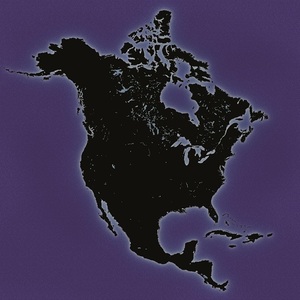Canada ratifies USMCA trade agreement

March 16, 2020
BY Erin Krueger
The Canadian Parliament approved the U.S-Mexico-Canada (USMCA) trade agreement on March 13. The trade pact, which replaces the North American Free Trade Agreement, has now been ratified by all three countries.
President Donald Trump, Canadian Prime Minister Justin Trudeau and then Mexican President Enrique Peña Nieto signed the USMCA on Nov. 30, 2018. Mexico ratified the deal in mid-2019. The U.S. House of Representatives passed USMCA on Dec. 19, 2019, followed by the U.S. Senate on Jan. 16, 2020. Trump signed legislation implementing the trade deal on Jan. 29, 2020. Canada became the final nation to ratify the agreement on March 13.
“Now that the USMCA has been approved by all three countries, an historic new chapter for North American trade has begun,” said U.S. Trade Representative Robert Lighthizer. “This landmark achievement would not be possible without President Trump’s leadership and determination to strengthen our economy, and the hard work of our negotiating partners in Canada and Mexico. USMCA is the gold standard by which all future trade agreements will be judged, and citizens of all three countries will benefit for years to come.”
Advertisement
Advertisement
According to Lighthizer’s office, all three countries are now working closely on implementation in advance of the agreement’s entry into force.
Agriculture Secretary Sonny Perdue called the USMCA a great victory for America’s agriculture industry. “USMCA locks in and expands access to our neighbors to the North and South,” he said. “I thank President Trump for negotiating this deal and for always supporting America’s farmers and ranchers. We will continue to work with both Canada and Mexico in implementing this agreement.”
Darren Armstrong, chairman of the U.S. Grains Council, noted that the USMCA maintains zero tariffs on U.S. feed grains, co-products and ethanol. “Throughout the negotiations that produced USMCA, the Council has worked closely within our industry, with our customers—particularly in Mexico—and with the negotiating governments to ensure the needs of the U.S. grains sector were considered and the new agreement continued the success we experienced together under NAFTA,” he said. “We welcomed the chance to bring Mexican buyers to the United States, U.S. farm reporters to Mexico and talk with so many stakeholders about the importance of our relationships with Canada and Mexico.
Advertisement
Advertisement
“All told, we believe this agreement will solidify our most important and strategic trade relationships with our closest neighbors and best customers, and it will position our industry to continue to grow with our friends and partners in Mexico and Canada,” Armstrong added. “We appreciate the hard work of everyone involved in this intense process and look forward to continued growth toward a more successful future with the foundation USMCA provides.”
USGC data shows the U.S. exported nearly 33.74 million gallons of ethanol to Mexico during the 2018-’19 marketing year, up from 28.46 million gallons the previous marketing year. The U.S. also exported 2.02 million tons of dried distillers grains with solubles (DDGS) to Mexico during the 2018-’19 marketing year, down from 2.13 million tons in 2017-’18.
The U.S. exported 330.77 million gallons of ethanol to Canada during the 2018-’19 marketing year, down slightly from 335.27 million gallons in 2017-’18. Canada imported 667,446 tons of U.S. DDGS in 2018-’19, up from 653,993 tons the previous marketing year.
Related Stories
Bangkok Airways Public Company Limited has officially announced the adoption of sustainable aviation fuel (SAF) on its commercial flights, reinforcing Thailand’s green aviation industry. The initiative took effect starting July 1, 2025.
Avalon Energy Group LLC and Sulzer Chemtech have signed a strategic alliance and partnership agreement to scale up the production of SAF. Under the agreement, Avalon has selected BioFlux technology for its portfolio of SAF projects.
The USDA has announced it will delay opening the first quarterly grant application window for FY 2026 REAP funding. The agency cited both an application backlog and the need to disincentivize solar projects as reasons for the delay.
Neste and DHL Express have strengthened their collaboration with the supply of 7,400 tons (9.5 million liters) of neat, i.e. unblended, Neste MY Sustainable Aviation Fuel to DHL Express at Singapore Changi Airport starting July 2025.
CoBank’s latest quarterly research report, released July 10, highlights current uncertainty around the implementation of three biofuel policies, RFS RVOs, small refinery exemptions (SREs) and the 45Z clean fuels production tax credit.
Upcoming Events










